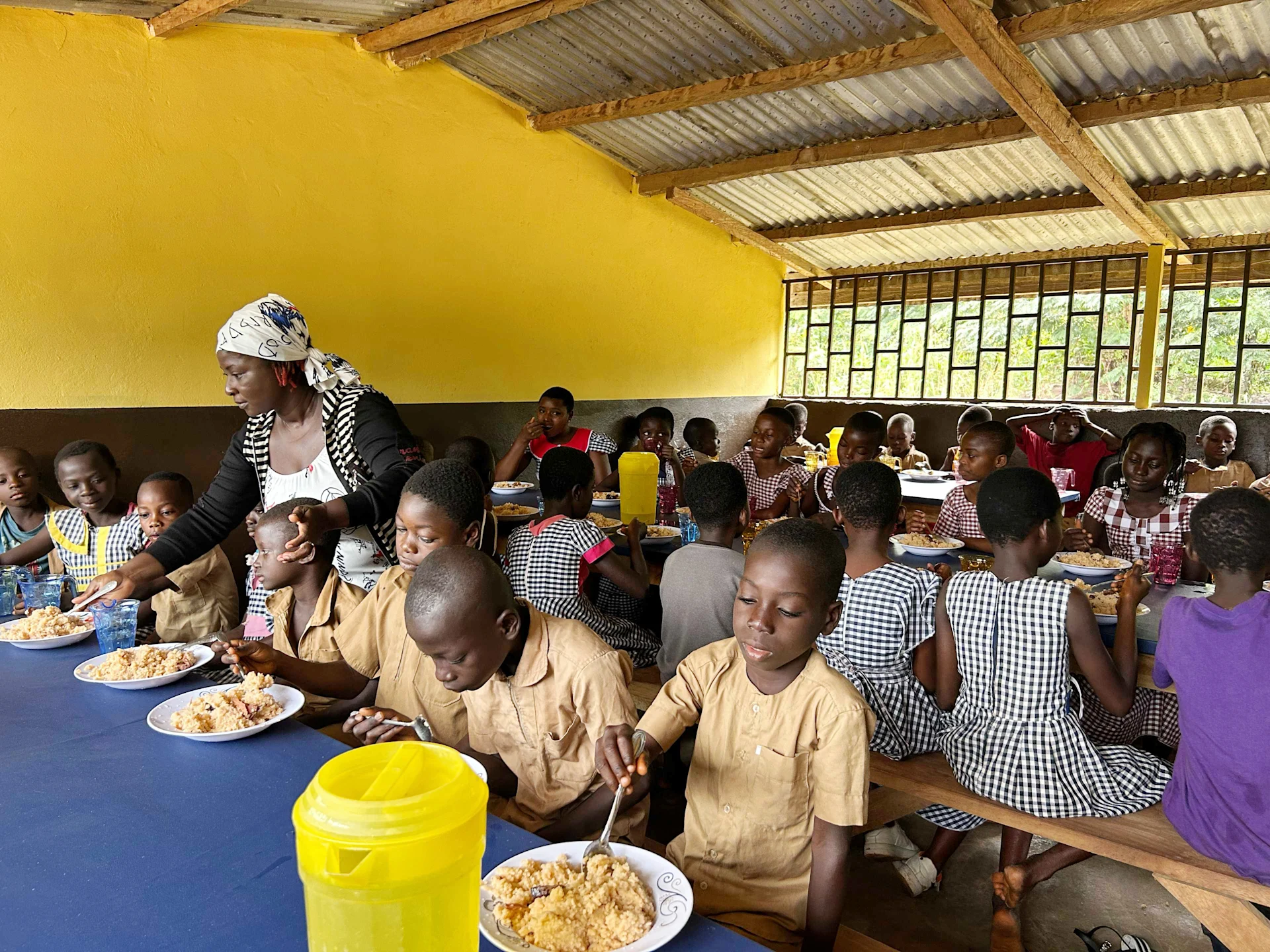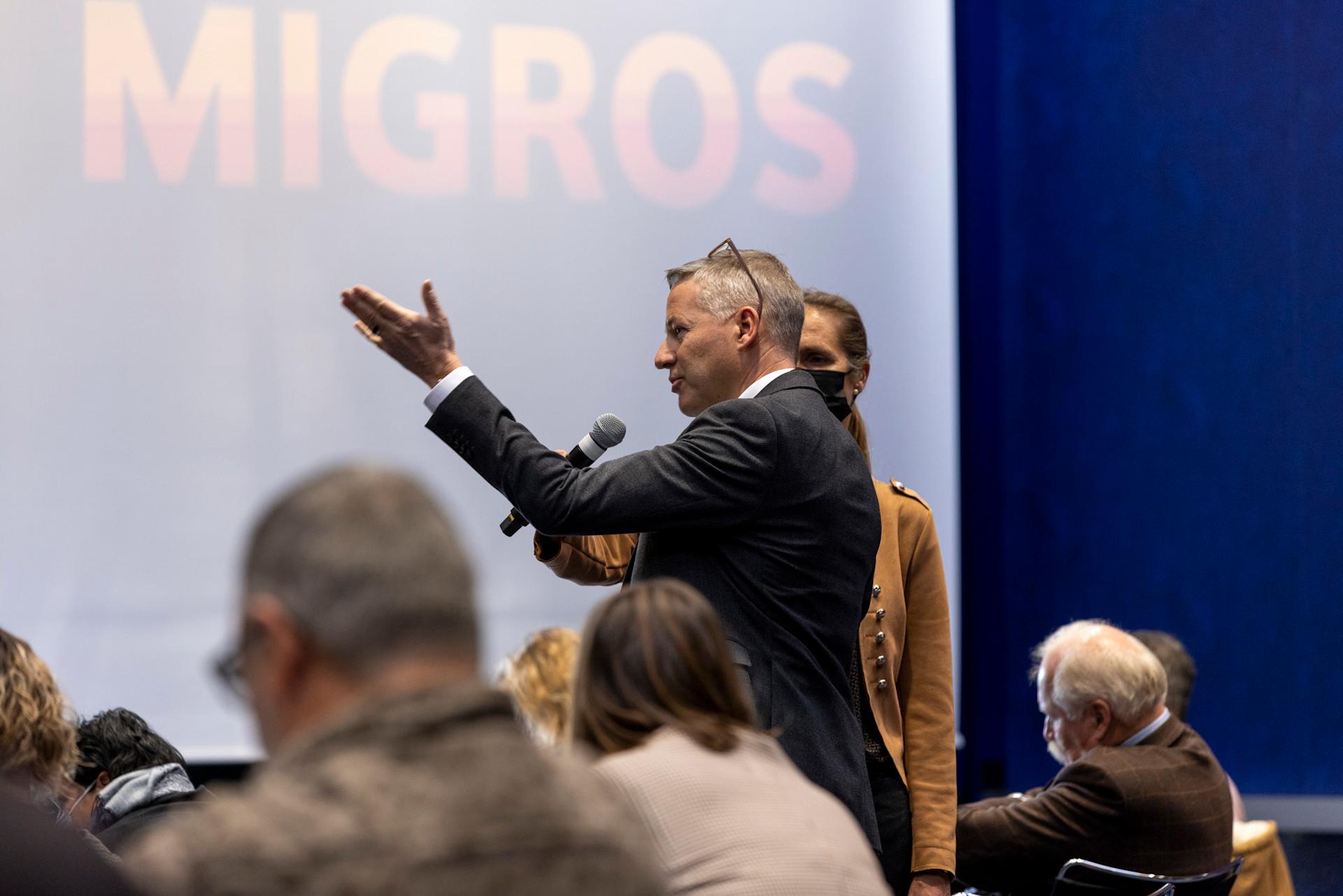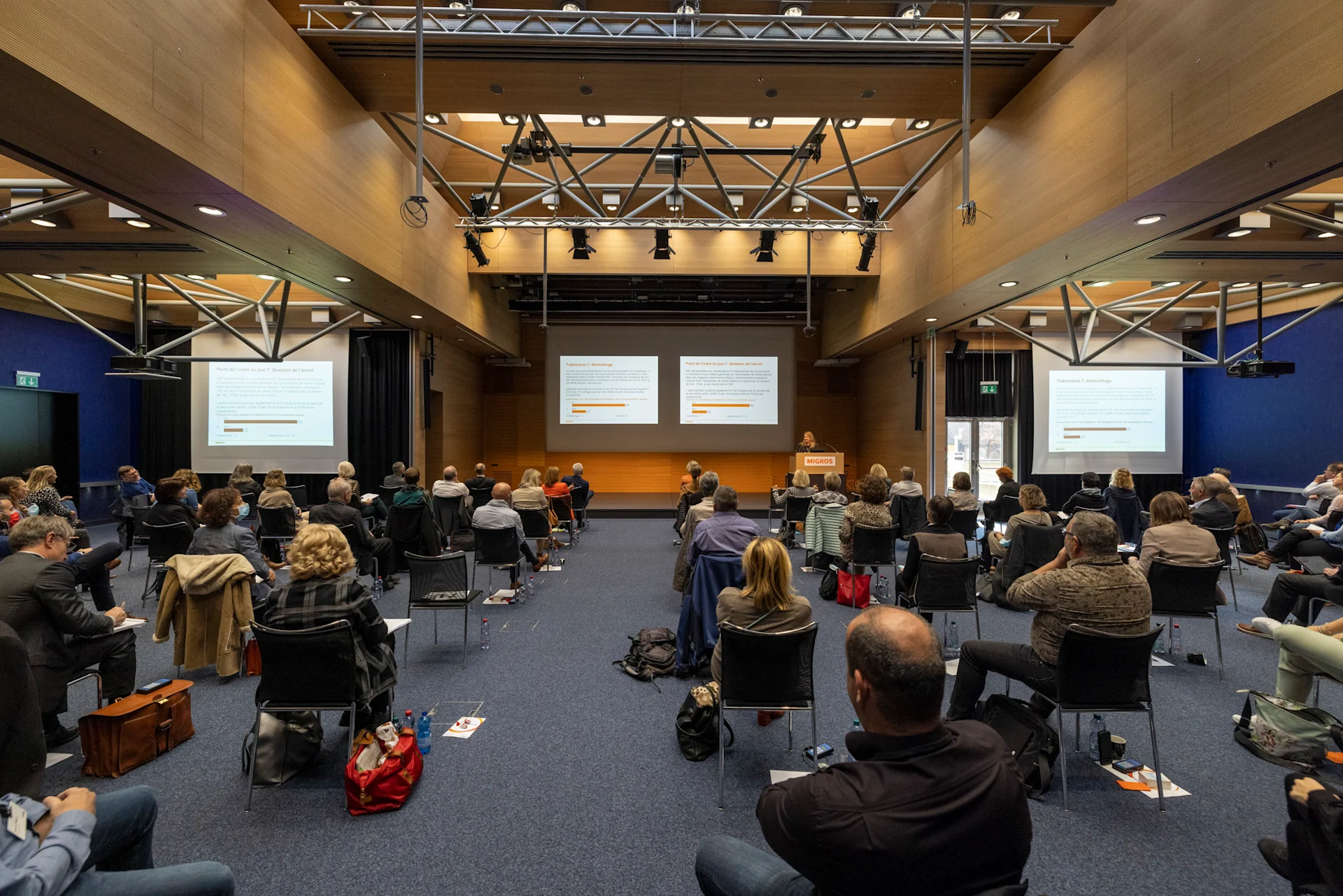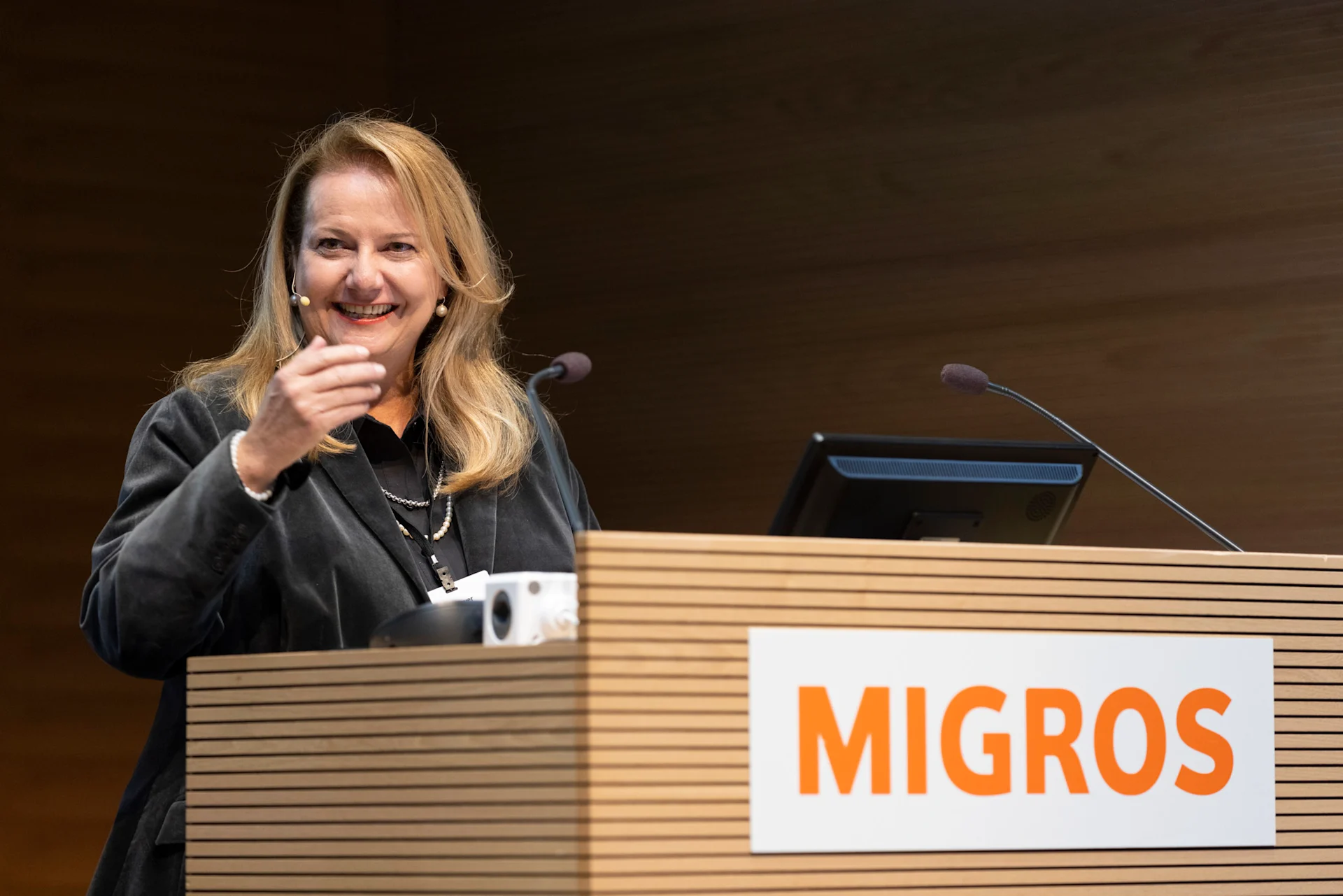
Sustainability
Do something good for CHF 0.50
If you buy a bar of "Côte d'Ivoire" chocolate, you will be contributing to a success story in West Africa.
navigation

Assembly of Delegates
Wine, beer and schnapps on the Migros shelves? On Saturday, the Migros Assembly of Delegates decided with the necessary majority to refer this question to the regional cooperatives and thus open up the possibility of general membership votes. This was preceded by an enthusiastic and passionate debate.
The 110 delegates saved the most explosive agenda item for last. By 11:20 a.m. sharp, the time had come – Marianne Meyer, President of the Assembly of Delegates, opened the debate on the question of whether Migros should remove its ban on the sale of alcohol in its bricks-and-mortar stores from the statutes – or, to be more precise, whether the 2.2 million Migros cooperative members should decide this question in a general membership vote. To start with, Marianne Meyer reiterated what the upcoming vote was about: do the delegates want to grant the regional bodies of the cooperatives the opportunity to further address the question of lifting the ban on the sale of alcohol in bricks-and-mortar stores? This was the only issue at stake on this Saturday, according to Meyer. She also stated that the delegates’ personal stance regarding the alcohol question should have no bearing on this issue.
The first speaker to step up to the podium was Ursula Nold, President of the Federation of Migros Cooperatives (FMC) Administration: “I must confess I gulped when I first heard that this application had been submitted”, she said, adding that the Administration quickly realised that the debate about this “hot potato” could also be an opportunity. “We can now resolve this recurring issue once and for all”, she claimed, stressing that it was important for this to happen through grassroots democracy in the form of a general membership vote with a binding result. She added that this was what Gottlieb Duttweiler had also promised. It was the first but not the only time that the name of the Migros founder and architect of the ban on the sale of alcohol was mentioned in this debate.
Nold also emphasised that the ban on the sale of alcohol was introduced in the post-war years for public health reasons and because of Migros’ social responsibility. "Migros is very active in many areas through its voluntary social commitment”, said Nold. This opened the debate among the delegates. In her contribution to the discussion, one of the original initiators of the application called for a vote in favour of the general membership votes in the regional cooperatives, also stating the reasons why she and four other delegates had submitted this application. It was a fact, she said, that some felt the request was a “betrayal of Dutti”; however, others felt that Migros’ conduct was not credible, as alcohol was definitely sold at numerous outlets within the Group, namely Migros Online and Denner.
She also mentioned that, when it came to public health, hardly anyone pointed the finger at alcohol, the critical issues being sugar, diabetes and loneliness. She stated that, as an addictive substance, alcohol was open to abuse, but that the vast majority of people today consumed it as a semi-luxury item – as Gottlieb Duttweiler also did.

Contrary to the previous speaker, one delegate from the Aare cooperative believed that the Assembly of Delegates should not simply kick this “hot potato” down the road, but rather decide here and now that the ban on the sale of alcohol should remain in place, adding that the delegates were elected to take decisions rather than delegate them to someone else, and that, way back when, Migros had voluntarily refrained from profiting from the sale of alcohol, making Migros unique. For him, to now give up this unique selling point in Swiss retail, and a familiar Migros value, made no sense and would weaken Migros.
After a reply from one of the initiators, stating that democracy was also a Migros value, the debate drew to a conclusion after almost exactly an hour, whereupon President Marianne Meyer called for the vote. For the application to be accepted, at least two thirds of the 110 delegates would have to vote in favour, that is to say 74 of them. Voting was electronic and secret, and the result appeared after two minutes: 85 voted for, 22 voted against, and there were 3 abstentions. Marianne Meyer declared the application accepted to the applause of those in attendance. “For me, this is strong proof of our democracy at Migros. We have democratic structures like no other company, which show that we take co-determination seriously”, she said.

To conclude, Ursula Nold explained the next steps. By the beginning of December, the various bodies of the regional Migros cooperatives will decide whether they wish to put the question to their cooperative members in a general membership vote. If this were to be the case, the vote would take place in June next year. So the Migros community could be in for an eventful 2022.
Discover exciting stories about all aspects of Migros, our commitment and the people behind it. We also provide practical advice for everyday life.